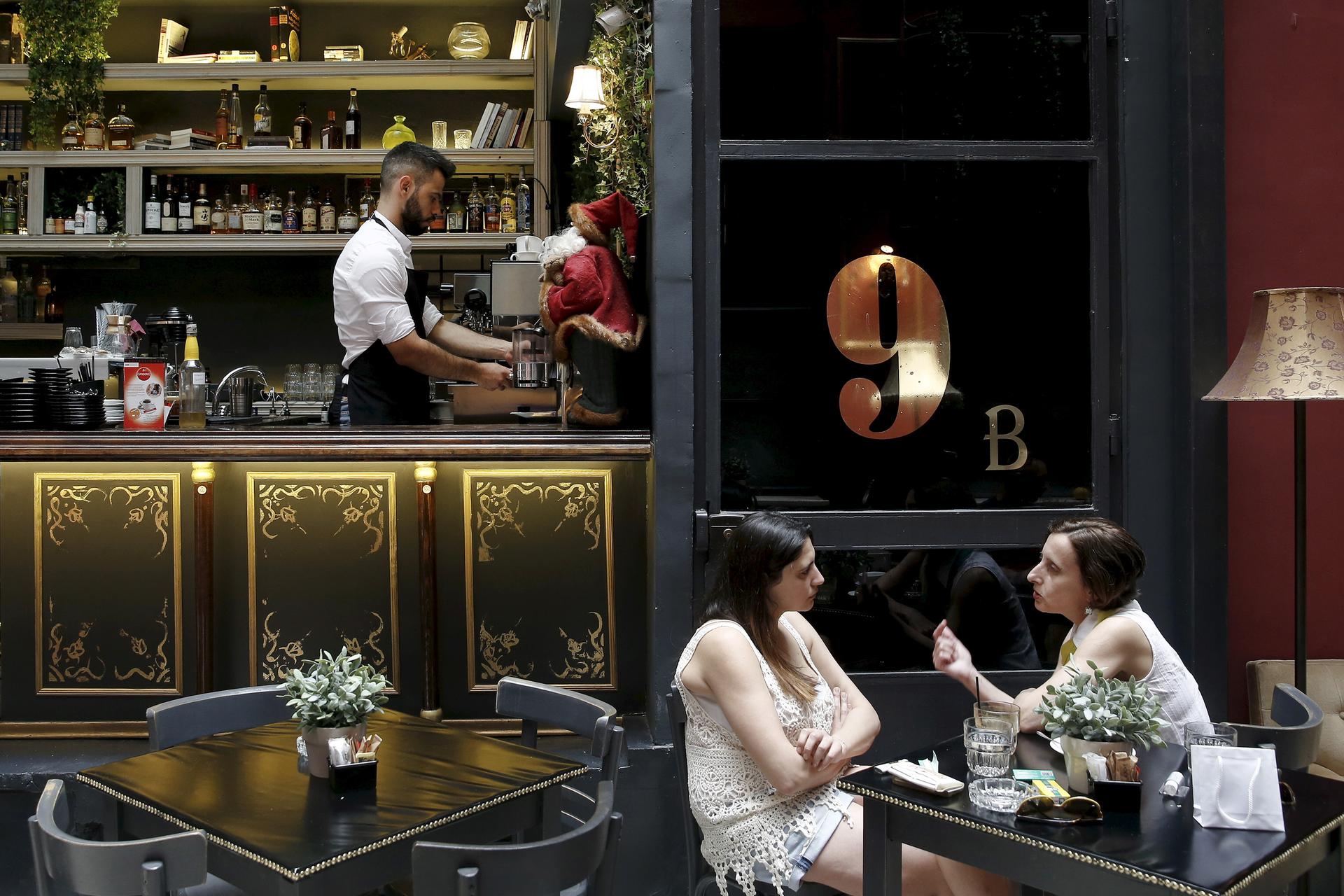For Greek youth, life has been one crisis after another. So, panic? ‘The bars are full.’
Women talk inside a cafe in Athens, Greece June 25, 2015.
"If you go to the bars or the islands you will see that there is no crisis in Greece. Everyone is out having fun," claimed 21-year-old Vagelis Papadopoulos of Athens, when I spoke to him a few months ago.
And if you walk around the Greek capital at night you can see the logic. Usually every bar is full, with people spilling out onto sidewalk seating with their hand-rolled cigarettes and beers. During the day Greek young people fill the public squares and coffee shops. Ostensibly everything is business as usual.
Not to say that business isn't bad. There are closed shops on every block and construction projects that seemed to be permanently abandoned. But rather that the poor economy has been a fact of life for many Greek people, especially young people who have lived in "crisis" for most of their lives, including a very high youth unemployment rate.
Things have escalated in the past few days. Tomorrow Greece's international bailout program expires, and the country owes the IMF a 1.6 billion-euro debt repayment they will be not likely to make. In light of this, Greece has closed its banks this week and limited ATM withdrawals to 60 Euros, hoping to prevent a run on the banks. Antonis Polychroniou, a freelance software engineer in Athens, explained that there were lines at every ATM.
But the ATMs have been unreliable for some time — known to not have enough cash and eat cards easily — and many Greeks have been storing cash in their homes for at least the past six months.
In a Facebook conversation on Monday, Polychroniou acknowledged the issues. "OK, I’m an optimistic guy in general, but now I’m not optimistic at all!"
Those with children are especially panicked about what will happen, and many have expressed hopes the country will stay on the Euro.
But most Greek youths are not panicked, despite the ATM lines. "The rich young people are worried … but they are few," Andreas Hasiotis, the owner of a hair salon based in Athens, explained Monday. "In general we are calm."
With unemployment and underemployment ranging from 15 percent to 50 percent, by some accounts, it would seem that for most young people, the crisis is old news, and the economy can only get better. "If there is a new start for Greeks, we say welcome," Hasiotis said. Young people in general don't have a lot to lose.
In the meantime, Athens does not look that different once the stock markets close and the sun sets.
"The bars are full, people are talking, drinking, and having fun," said Hasiotis. "The Greeks are not going to lose their mentality."
Antonis Polychroniou was similarly confident that daily life would not screech to a halt: "I don't know about right now, it is the first day and time that this is happening, but Greeks certainly will continue to go out. Just spending less money, I suppose."
We want to hear your feedback so we can keep improving our website, theworld.org. Please fill out this quick survey and let us know your thoughts (your answers will be anonymous). Thanks for your time!
